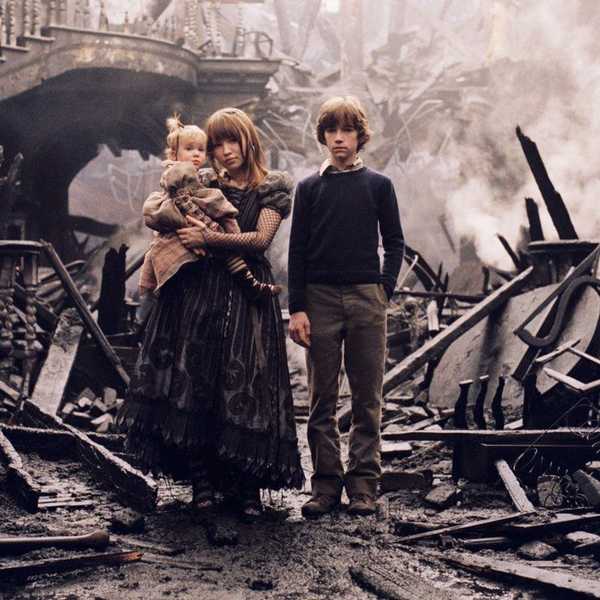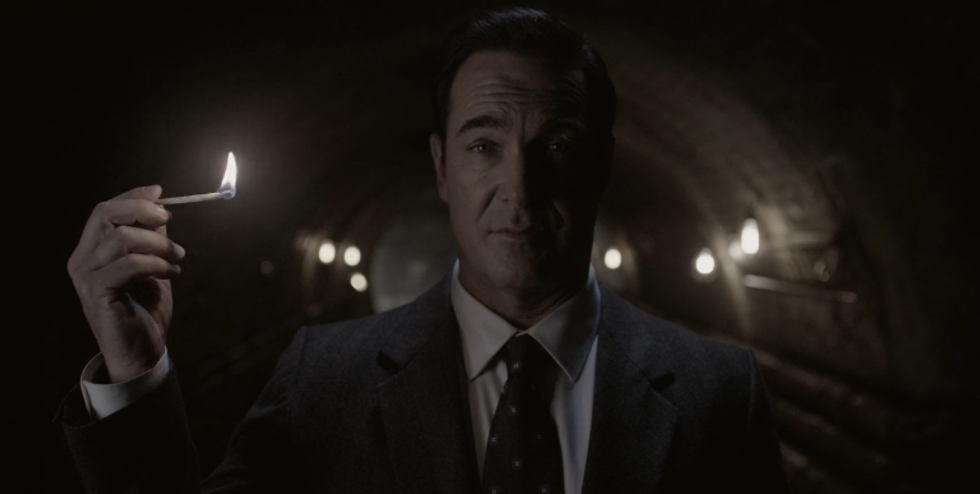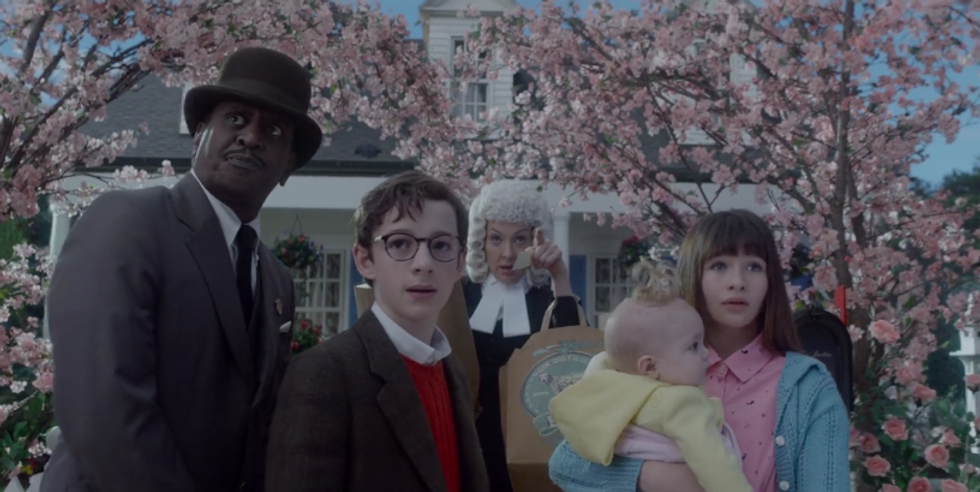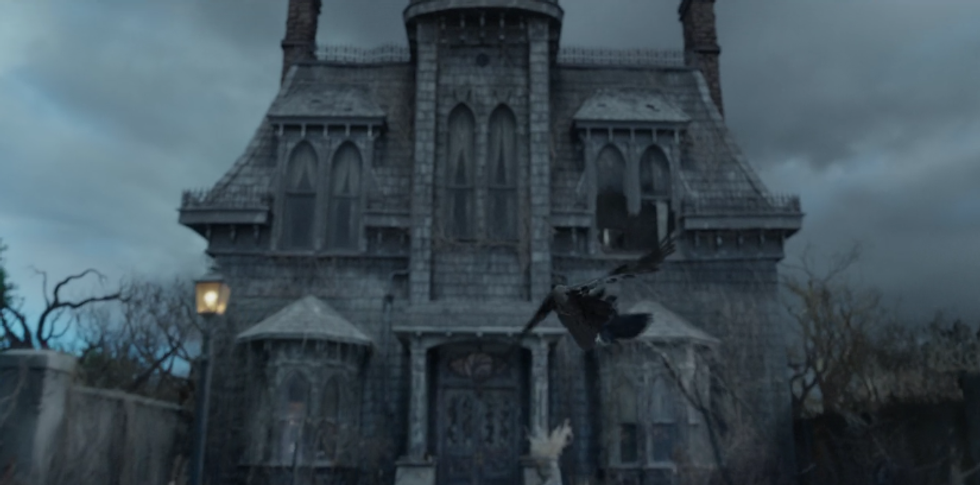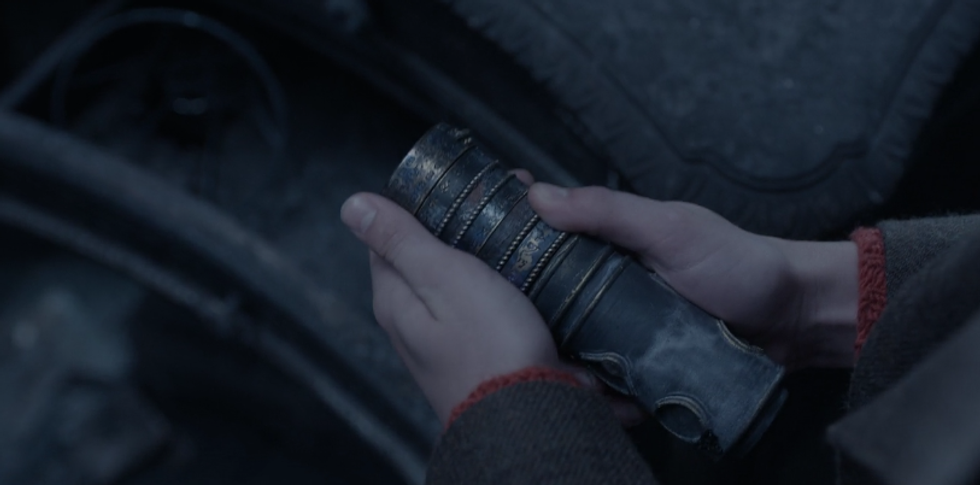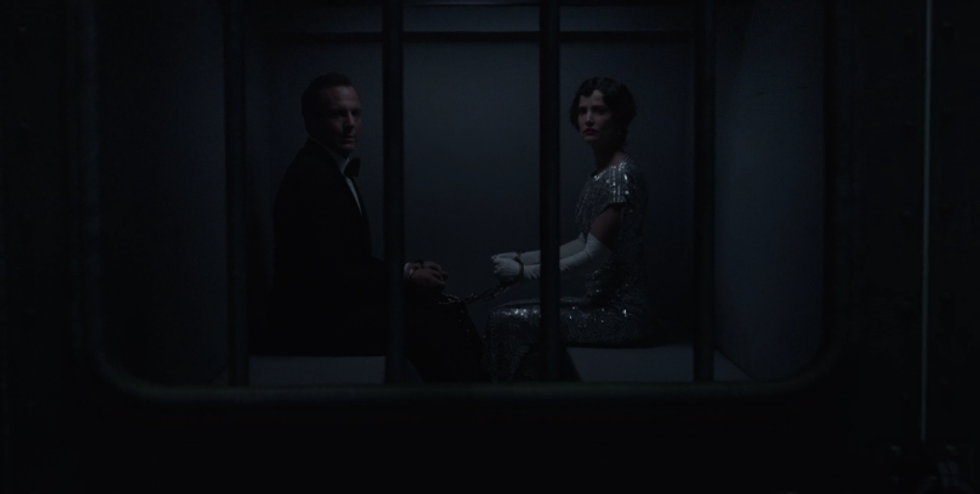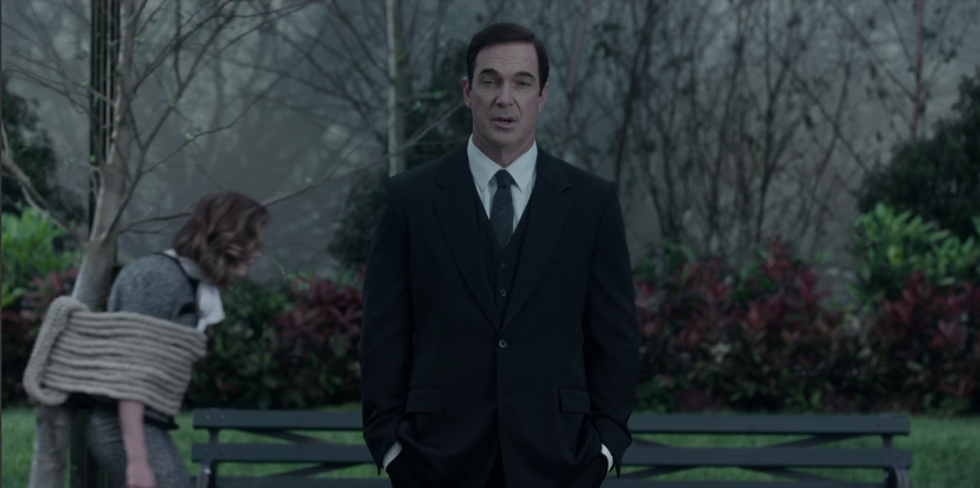Netflix recently began streaming their new show, A Series of Unfortunate Events. This show is based on the book of the same title written by Lemony Snicket telling the tale of the three Baudelaire orphans whose parents had died in a fire that consumed their entire livelihood. The orphans are then sent to live with their “closest” living relative, a term which here means the relative who is the closest distance from the Baudelaire home. His name is Count Olaf, and he is just the worst.
This is a book series that I grew up with and was absolutely in love with, although very apprehensive following the release of a movie with the same title in 2004, but there is no need to speak of it because this show is exactly what I’ve always wanted since The Bad Beginning was released in 1999. The Netflix show is currently eight episodes long and spanning the events of the first four books of the series. Over the next four weeks it is my sad duty to write this unpleasant review, but there is nothing stopping you from closing this window at once and reading a review of something happy, if you prefer that sort of thing.
Beware: Spoilers Ahead
After a dreary and cryptic opening theme song, which I am certainly hoping will alter with every book, we are introduced to Lemony Snicket who gives us a warning before venturing further. Let me start by saying that I firmly believe that Patrick Warburton was the perfect choice to play this incredibly depressing narrator. His monotone voice and matter of fact sarcasm is exactly how I, and others that I have spoken to, read the books. It is really how they are written themselves. Not to mention that the lines are pulled almost exactly as they are in the book! It is the little details such as those that immediately made me a little more excited, yet saddened, to watch the story of the Baudelaire orphans unfold.
The art style in the show also deserves a lot of merit. It is somehow both whimsical and dark, similar to the overall feel of the books themselves. When you first see the Baudelaires they are on a tram that going through the town and everything is incredibly bright and colorful. Even as a fire truck rushes past sirens ablaze (ha, a pun) it is still an incredibly bright scene, but soon turns dim as they approach the briny beach where Mr. Poe explains to them that their parents are dead in a fire, where we imagine to where the aforementioned firetruck was racing. This is not the only circumstance in which this drastic contrast between the whimsical and dark is used. First, we are introduced to Justice Strauss and her, incredibly gorgeous and bright home.
And then there is Olaf’s home, which we are introduced to as a pretty little blue bird from Justice Strauss’ yard is completely annihilated by a raven as we get our first view of Count Olaf’s “humble abode.”
However, not everything in the show is the same as the book. When I first saw the additions stated below, I was a little confused. I feared this diversion would take away from my beloved stories, so to move onto the second part of my review…
What is up with the Spyglass?
Well, it is more than just a spyglass, it seems to be an entire secret organization. That we are led to believe the Baudelaire Orphans are a part of somehow. This spyglass was never mentioned in the book, and neither was the secretary Jacquelyn, so where did they come from? If Lemony Snicket was reporting all things that happened to the Baudelaires since the death of their parents, why did he never tell us these things? However, since Mr. Snicket was a very influential member of the creation team of this series, I decided to give him the benefit of the doubt and continued to watch, which led me to a pretty interesting thought.
If Lemony Snicket had only entered the house after the Baudelaires had been there, he wouldn’t have known that there was a spyglass in the desk drawer, and he certainly wouldn’t have knowledge that Klaus had taken the spyglass with him, so perhaps those were the reasons. Although that alone was not nearly convincing enough for me, considering Snicket had written about the exact items that Violet and Klaus looked at when they arrived at the mansion on page 12 of the book. Nevertheless, I continued watching, hoping for more information as to why this was the first we had heard of it.
Then the ending of Part One came, and OH, MY GOD, WHO ARE MOTHER AND FATHER AND ARE THEIR PARENT’S STILL ALIVE?! Of this, I was unsure how to feel. The story certainly does not have a happy ending and I feel as though that the fact that the Baudelaire’s parents were still alive was a little too much information for Snicket to have glossed over in the books.
So, with questions lining my pockets, I trudged forward to Part Two where we are given a flashback that was pushed for by the many police inspectors, concerned citizens, and television executives to give us more information as to how the orphans came into the care of Count Olaf. During this flashback we are introduced to Jacquelyn who seems to be the only one on the orphans side, however, she is quickly removed from her position at Mulctuary Money Management by one of Olaf’s henchmen and tied to a tree in a remote park. Now, again, this would be a pretty large oversight on Snicket’s hands, except that he only actually refers to her specifically in the flashback. The next time we are seeing both Jacquelyn and Snicket at the same time is when he is talking about standoffishness, he does not make any point at that time to acknowledge her.
This gives me hope for the storyline. The only mention of her is in a passage that does not exist, the flashback, which takes place between chapters four and five in the book. They even make a point to show what she is doing while Snicket is talking about some other entirely unrelated thing, make it seem as if Snicket has no idea what is going on at that time. I find that to be pretty interesting and I certainly will keep my ears out for more of these moments.
My final thoughts are of Gustav, of whom if you’ve read the books is the missing assistant to Professor Montgomery Montgomery who is to become the Baudelaire’s guardian in the next book. We have never actually met Gustav in the book and it has always really bothered me why and, well, now I know. Poor poor Gustav. However, I am very intrigued by all of the extra story information we are given as well as a lot of questions being answered, while also creating many more. This gives those of us who read the books the ability to see the tales of woe come to life, as well as know more about the story than we ever have before. Lemony Snicket says it best…
“Just because you don’t understand it, doesn’t mean it isn’t so”
